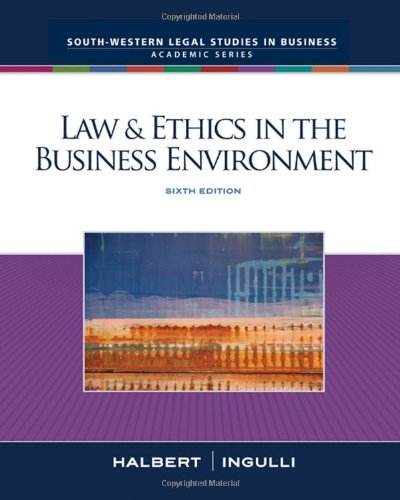Internet Assignment Silverstein posted his paper on www.defendingscience.org, the Web site for Scientific Knowledge and Public Policy
Question:
Internet Assignment Silverstein posted his paper on www.defendingscience.org, the Web site for Scientific Knowledge and Public Policy (SKAPP.) Dedicated to “transparent decision-making that draws on the best science to protect public health,” SKAPP writers are expected to be careful to document their findings.
(a) Find the complete draft of Silverstein’s paper and read the footnotes that have been omitted from this excerpt. To what extent does he cite evidence to support his claims?
(b) What other papers can you find on the SKAPP Web site that address the abuse/misuse of science in making public policy?
… Thirty five years after the Act, much is left undone. A worker still becomes injured or ill on the job every 2.5 seconds and these injuries and illnesses have disproportionate, unfair impact in especially high risk industries and among groups of disadvantaged workers.…
[O]verall national rates for workplace injuries and deaths have declined since 1973, due at least in part to activities set in motion by the OSH Act, but these improvements mask serious remaining problems that have been resistant to change. … [T]he rate of more severe cases (those resulting in days away from work or restricted work) has stayed almost flat.… The number of fatal work injuries among Hispanic workers, particularly those who were foreign born, has nearly doubled in less than fifteen years. This is partly because the numbers of immigrants in the workplace has been increasing, but also because Hispanic workers are concentrated in especially dangerous jobs and have work fatality rates greater than the national average.…
… These deaths and injuries are not random accidents. They are predictable and preventable.
They target the most vulnerable and least privileged, the recent immigrants, day laborers, farmworkers and others who work under the worst conditions and are subjected to the highest risks:
[Silverstein notes high-risk employment faced by truck drivers, construction workers, nurses aides, and farmworkers. He also cites meat and poultry industry employees as having to contend not only with the risk of severe physical injury, but with employers who make it hard for them to collect workers’ compensation, and who crush any efforts by a mainly immigrant labor force to organize into unions.]
It is unconscionable that in the most advanced economy in the world our modern offices, hospitals and factories operate side by side with sweatshops and industrial jungles that should exist only in novels about an earlier era.
Workers today are confronted with four types of risks on the job.
First, many dangers, such as falls from roofs or amputations from unguarded machinery, were widely recognized when the OSH Act was adopted in 1970 and should have been eliminated years ago. Simple means of correcting some of these hazards have actually been well understood for more than two thousand years, as Herodotus described the prevention of fatal trench collapses in his history of the Persian Wars. [cite omitted]
Second, today’s workers face hazards present in 1970 but not fully appreciated by those who wrote the OSH Act, like the forceful exertions, repetitive movements and awkward postures that can cause the work related musculoskeletal disorders which account for more than 30% of all worker compensation claims and affect workers in virtually every industry and occupation. [cite omitted] Other examples include workplace violence and biohazards.
Third are genuinely new hazards that have entered the workplace since 1970 such as diacetyl and other food flavorings that cause bronchiolitis obliterans (“popcorn lung”)
[cite omitted] or modern metalworking fluids that cause hypersensitivity pneumonitis.
[cite omitted]
Step by Step Answer:

Law And Ethics In The Business Environment
ISBN: 9780324657326
6th Edition
Authors: Terry Halbert , Elaine Ingulli





